Entanglements of the U.S. military-industrial complex
By Nathaly Ortiz
As a first-generation Latinx college student entering my second year in the doctoral program in Ethnic Studies at the University of California, Riverside, I have an obligation to publicly engage with the communities that I was raised in and that I am in solidarity with. When I say communities, I refer to not only the Latinx community, but particularly those of us in and outside of the Latinx community who have been impacted by the carceral system and its burgeoning iterations such as the criminalization of our undocumented loved ones to predatory military recruitment as a “way out” of poor/working class households. I have the privilege to work alongside many community members and allies within and outside of the university to continue to collaboratively practice and produce publicly engaged scholarship.
When I first heard the term public scholar(ship), I was not sure if I could consider myself to be a part of that. As I continue to expand my network of allies from the East Bay Area to the Inland Empire, and beyond, I see that my on-going dialogue with them related to our struggles for the liberation we each seek is indeed public scholarship. I cannot rethink the ways that my academic work on the U.S. military-industrial complex (MIC) impacts the world without public engagement. This is an on-going project that cannot be developed in isolation.
I am deeply invested in rethinking the ways that the MIC impacts myself and those around me. I find myself in various places that I did not imagine. One of those places being, and continues to be, fighting alongside environmental justice (EJ) warriors in the Inland Empire against the toxic warehouse economy. At first, I thought I might have to step away from EJ community work to devote my time to anti-militarist work, but realized that the EJ fight is a direct result of militarized dispossession because of the MIC. They are inextricably linked to one another. Another one of those places I never imagined was organizing and engaging with anti-militarist comrades in Chicago to imagine what a liberatory future looks like and how we might get there. This is to say that public engagement goes beyond an on-going dialogue. This is a commitment to a praxis that intersects with the struggles of EJ activists, anti-militarism movements, labor movements, and so on. These are the entanglements of the U.S. military-industrial complex.
Despite the insecurities and barriers that come with being a first-generation college student, I recognize how much I, and others like myself, have done simply by being in conversation with one another. I see how much more powerful we are when we take our words, education, and community struggles and turn them into a praxis that takes us a step closer to a liberatory future. I imagine a future where the MIC is no longer naturalized. I condemn the militarization of universities and the co-optation of our bodies and knowledge for war-making and on-going violent dispossession.
Image Description: People protesting in front of Governor J. B. Pritzker’s Gold Coast mansion in Chicago, Illinois. The foreground of the photo is a cardboard protest sign in red and green text that reads “NO MORE / WAR PROFIT.” A large cloth banner hanging from the gates of Gov. Pritzker’s mansion in the background reads “PRITZKER / NO $$ FOR / BOEING / DRONE FACTORY.” The People vs. Boeing & Pritzker, 11 September 2022. Photo by Nathaly Ortiz.



Very interesting piece Nathaly! This resonates a lot with me, not only because the MIC and warehouse industry have very serious negative impacts in the Inland Empire, but because being a fellow UCR student myself and living in Riverside, I have seen how this capitalistic industrial complex displaces and dispossess most of people, all for profits. This piece also resonates with me, since I also stand against mass incarceration, including prisons and so-called “detention centers” which are just prisons for immigrants that the only “crime” they committed was trying to get a better life. Finally, I also use EJ frames, and I agree with you, because the struggle towards environmental justice is a struggle towards environmental racial justice.
Finally, I congratulate you for your work and also add that we have to condemn capitalistic wars, like the one happening in Ukraine, because it is pushed by the MIC sacrificing the lives and life quality of millions of peoples.